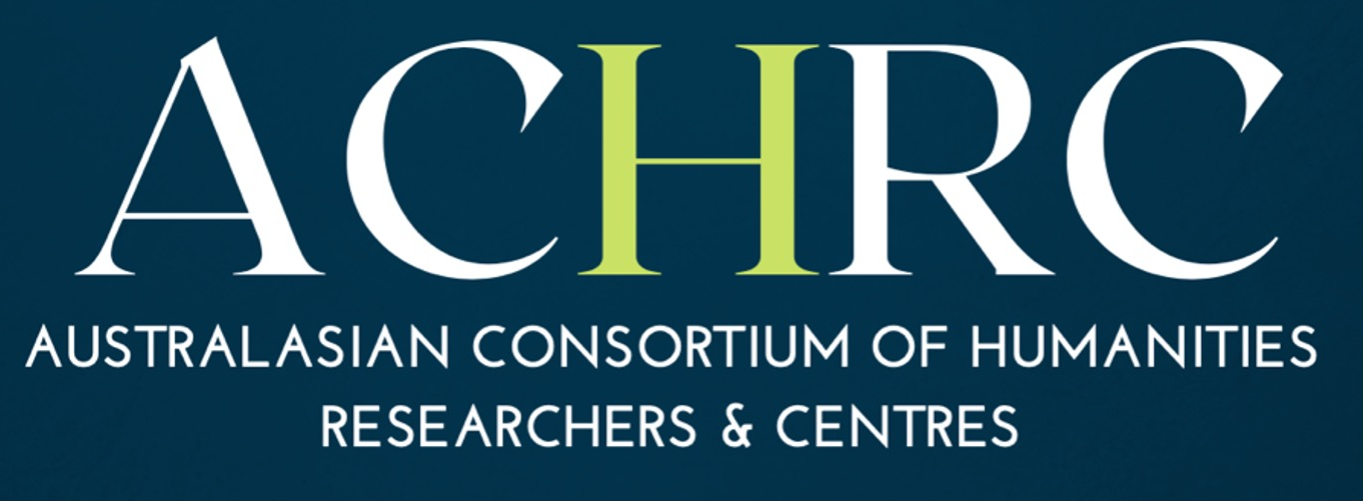The Australian and New Zealand Environmental History Network
(Please note, this is a 6-part video series. Each video will play automatically, or you can find the full playlist on the ACHRC YouTube channel.)
Abstract
Environmental history asks fundamental questions about the complex and shifting relationships between people and environments, providing insights that can help us address the environmental challenges of the present. In Australia, environmental history is a thriving area of research, as environmental challenges proliferate and we turn to the past for understanding, inspiration and justice.
This series of short videos, produced by the Australian and New Zealand Environmental History Network (ANZEHN), explores the breadth of topics currently being researched within environmental history in Australia. In each video science can be seen to inform the work of historians, and in turn scientific understandings of the world are enhanced by the skills of historians who recognise the ways in human perceptions and motivations interact with the physical world. These videos serve as an example of the understandings that can be achieved when humanities scholars use scientific tools within their research, and of the way in which understanding humans is often essential to understanding environmental change.
When the ANZEHN was established in 1997 it was a Canberra-based group. Since then it has expanded to become a globally-recognised transnational network that connects over 500 people in Australasia and beyond with the latest environmental history research, events and opportunities.
ANZEHN website: https://www.environmentalhistory-au-nz.org/
Presenter Biographies
Alessandro Antonello is interested in the environmental histories of Antarctica, the global cryosphere, and oceans in the twentieth century. His most significant work is his 2019 book The Greening of Antarctica: Assembling an International Environment (Oxford Uni. Press). He works at Flinders University in Adelaide. www.flinders.edu.au/people/alessandro.antonello
Claire Brennan is a lecturer in History at JCU. She teaches and supervises at undergraduate and postgraduate levels. Her current research focuses on crocodile hunting in tropical Australia. She is regularly interviewed by the media. Claire supervises a wide range of topics at doctorate, masters, and honours levels. https://research.jcu.edu.au/portfolio/claire.brennan/
Margaret Cook is an environmental and social historian and a lecturer in History at the University of the Sunshine Coast. Her current research interests include floods and climate, urban history, cotton and Australian settler societies. She is the author of A River with a City Problem: A History of Brisbane Floods (2019) and co-editor of Disasters in Australia and New Zealand (2020) with Scott McKinnon. http://margaretcookhistorian.com.au
Nancy Cushing is a Senior Lecturer in History at the University of Newcastle, teaching and researching in environmental history. Her particular research interests lie at the intersection of human-animal relations and food studies, and in the environmental history of Newcastle, the subject of her 2015 book with Howard Bridgman, Smoky City. She was convenor of the AHA Green Stream in 2016 and 2017 and chaired the interim committee of the EHN.
http://www.newcastle.edu.au/profile/nancy-cushing
Andrea Gaynor is an Associate Professor of History at the University of Western Australia. An environmental historian, her research seeks to use the contextualising and narrative power of history to assist transitions to more just and sustainable societies. Her most recent book, co-authored with Richard Broome, Charles Fahey and Katie Holmes, is Mallee Country: Land, People, History. Current research includes histories of community-led land management in Western Australia, water in Australian urbanisation and nature in Australian urban modernity. She is convenor of the Australian and New Zealand Environmental History Network and Vice-President of the European Society for Environmental History.
http://www.web.uwa.edu.au/person/andrea.gaynor
David Harris has published on different aspects of Victoria’s history including heritage conservation, public housing and early-twentieth century social reform, and the nineteenth-century environmental history of the Gippsland Lakes. He is an honorary associate in the Centre for the Study of the Inland at La Trobe University.
https://latrobe.academia.edu/DavidHarris
Scott McKinnon is a research associate at the Australian Centre for Culture, Environment, Society and Space (ACCESS),University of Wollongong. He is an oral historian and geographer with a background in disasters research, geographies of memory and histories of sexuality. He is the author of Gay Men at the Movies: Cinema, memory and the history of a gay male community (Intellect, 2016) and co-editor (with Margaret Cook) of Disasters in Australia and New Zealand: Historical Approaches to Understanding Catastrophe (Palgrave MacMillan, 2020).
Ruth Morgan is an Associate Professor in History at the Australian National University. She has published widely on the environmental histories of climate and water in urban and rural Australia, including her award-winning book, Running Out? Water in Western Australia (2015). Her current research examines the circulation of climate and hydrological knowledge around the Indian Ocean world during the long nineteenth century.
http://profiles.arts.monash.edu.au/ruth-morgan/
Emily O’Gorman is a Senior Lecturer at Macquarie University. She is an environmental historian with research interests in more-than-human geography and the wider environmental humanities. Her research focuses on rivers, wetlands, and climate. She is the author of Flood Country: An Environmental History of the Murray-Darling Basin (2012) and co-editor of Climate, Science, and Colonization: Histories from Australia and New Zealand (2014, with James Beattie and Matthew Henry) and Eco-Cultural Networks and the British Empire: New Views on Environmental History (2015, with Beattie and Edward Melillo).
http://emilyogorman.net/
